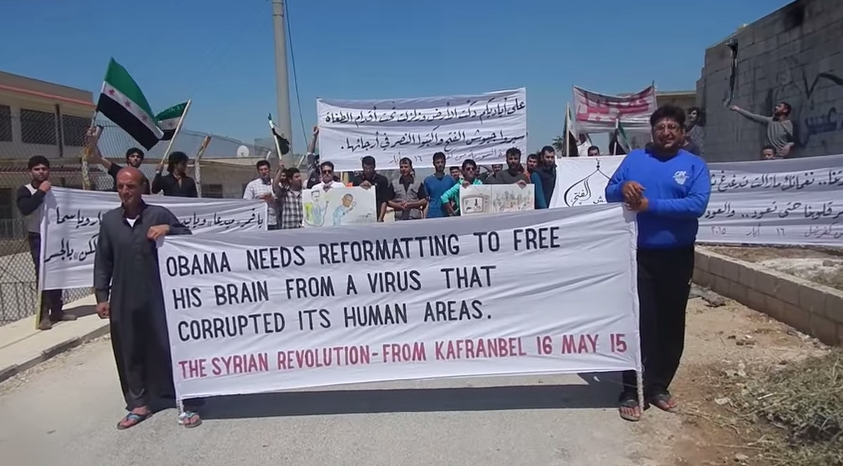
Nadia Bilbassy-Charters: "Somehow it’s perceived in the region that you’re putting down the Sunni Arabs, that somehow you link them to extremists."
Not immediately following, or it would be obvious -
President Obama: "The problem we also have is that on the other side inside of Syria, we have extremists who may be opposed to Assad but also deeply opposed to the United States, are deeply opposed to the GCC countries; are interested in establishing a very destructive order and have engaged in the same kinds of brutality and violence that we don't want to see deeply entrenched."
He's probably had his national security advisors tell him that Jabhat al-Nusra are just as bad as Assad or ISIS, so this may be as much down to ignorance and ideological preconceptions as mendacity. He doesn't have any problem with extremism when it comes to Saudi Arabia or the GCC countries. On what could be done to sort Syria out, he must know that it's a lie that the only options were an American invasion or nothing at all.
President Obama: "If the United States simply sent in troops into Syria -- our military is very effective, and for a short period of time, we potentially could come down on the side of the opposition against Assad.If you look at the history of the process, essentially what they're arguing is that we should have invaded Syria and overthrown the Syrian regime."
He should be criticised not only for not arming the Syrian opposition, the sort of action that could have seen the advances on the battlefield taking place now occur three years ago, and averted much of the destruction, but also for preventing others from giving them the weaponry they needed to change the balance of forces. But that is the sort of criticism he just ignores. And the diplomatic solution he's looking for isn't one that sees the overthrow of the régime, and the punishment of the war criminals, but one that keeps as much of Assad's state in place, and excludes as many Islamists as they can. If the rebels win, you can be sure he'll remind us that he called for Assad to go all along, but he's going to do as little as he can to help.
President Obama: "People may criticize us for not having launched missiles against Assad after chemical weapons had been used, but keep in mind why we didn't. We didn't because they got rid of their chemical weapons.
And that, in fact, was very important. It didn't solve barrel bombs. It didn't solve the incredible hardships that all the Syrian people are going through. But to solve those larger problems, that requires the kind of international work in which we are obviously a very significant part and a very significant partner -- and my Secretary of State, John Kerry, has been tireless in trying to arrive at a diplomatic solution to this problem."

No comments:
Post a Comment